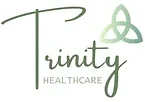- Home
- About Us
- Services
- Primary Care
- Preventative Services
- Transitional Care
- Annual Wellness Exams
- Acute Care Services
- Medical Clearance Examinations
- Chronic Disease Management
- Sports Physicals
- Geriatric Medicine
- Medication Management
- STD & UTI Testing
- Coordination of Care
- Telehealth Services
- Ordering Routine Labs and Scans
- Blog
- Patient Resources
- Contact Us

Mary Huntly APRN FNP-C
Key Takeaways
- Mobile healthcare reduces unnecessary ER visits by offering accessible, preventive care directly in the community.
- It lowers healthcare costs and improves outcomes through early intervention and chronic disease management.
- Data-driven insights help optimize mobile clinic services and expand their reach to underserved populations.
Emergency rooms (ERs) serve as a safety net for critical health needs, yet they are often overwhelmed with non-emergency cases that could be better addressed elsewhere. Mobile healthcare services are stepping in to change this dynamic by offering a convenient, cost-effective solution for patients.
But how, exactly, does mobile healthcare help minimize ER visits and reduce the financial burden on patients? By the end of this post, you’ll understand the benefits of mobile healthcare, how it makes emergency care more efficient, and how it bridges gaps in healthcare accessibility.
If you’re ready to explore a smarter, easier way to manage your health, keep reading. And if you’re seeking high-quality mobile medical care in Las Vegas, reach out to Trinity Family Practice for convenient, compassionate services delivered directly to your doorstep.
The Benefits of Mobile Healthcare
Mobile health clinics—often housed in vans or buses—are bringing a new level of accessibility to healthcare. These fully equipped facilities are staffed with skilled medical professionals who provide services such as basic check-ups, preventive screenings, chronic condition management, and even minor treatments.
Cost-Saving and Preventive Care
Mobile healthcare focuses on early interventions, which can help patients avoid costly health complications down the road. For instance, regular check-ups can catch conditions like high blood pressure or diabetes early, preventing the need for expensive ER visits or hospital stays.
These clinics are also incredibly effective at treating minor illnesses and injuries on-site. Instead of rushing to the ER for a simple cut or fever, patients can receive care from mobile clinics efficiently and affordably.
Preventive services such as flu shots, wellness exams, and routine labs further support long-term health and reduce reliance on emergency care. These services play a vital role in educating patients about their health status and empowering them to take proactive steps. Additionally, mobile clinics help patients build lasting relationships with providers—something that often improves long-term health outcomes.
Filling Gaps in Access
Many underserved communities—such as rural areas or low-income neighborhoods—suffer from limited access to healthcare facilities. Mobile clinics literally drive care to these areas, letting patients receive medical attention without traveling long distances or facing financial barriers.
This accessibility ensures that high-risk populations, such as the elderly or uninsured, are connected with necessary primary and preventive care.
By reducing missed appointments due to transportation challenges and financial constraints, mobile healthcare builds trust and promotes consistent care. These clinics often become a reliable touchpoint for communities with few other medical options. They also provide an entryway to broader healthcare services, including referrals and follow-ups with specialists.
Promoting Healthcare Awareness
Awareness is a crucial ingredient for healthy communities. Mobile clinics often serve a dual purpose by increasing education about healthcare services. They offer resources and recommendations to connect patients with specialists or follow-up care, ensuring no one feels left without a plan.
By bringing medical services directly to communities, mobile healthcare doesn’t just treat illnesses—it empowers patients to better manage their health.
They also partner with schools, shelters, and community centers to offer outreach events, screenings, and wellness programs. These events help normalize preventive care, especially for those who have historically avoided or distrusted medical systems. The impact extends beyond the patient—it strengthens the overall wellbeing of the entire community.
Reducing Emergency Department Visits
Did you know that 71% of ER visits could be safely handled in urgent care or primary care settings? This statistic speaks volumes about the mismanagement of healthcare access—and mobile health clinics are stepping up to bridge this gap.
Early Intervention
One of the standout features of mobile healthcare is its ability to provide early-stage care before conditions escalate into full-blown emergencies. For example, a patient experiencing signs of a urinary tract infection (UTI) could head to a mobile clinic for fast relief, instead of putting off care until it becomes unbearable—or ER-worthy.
Treating illnesses early also prevents complications that could lead to hospitalization. By catching symptoms before they spiral, mobile healthcare reduces both suffering and costs. This also allows patients to avoid long ER wait times and receive personalized, efficient care closer to home.
Chronic Disease Management
Chronic conditions like asthma, diabetes, and heart disease often lead to preventable ER visits when left unmanaged. Mobile clinics help reduce these visits by offering consistent care and education on managing these illnesses. They work to keep patients stable and out of emergency situations.
These clinics monitor patient progress over time, offering adjustments to medication and lifestyle recommendations. Regular follow-ups build accountability and allow for early detection of any changes in condition. As a result, patients experience fewer crises and enjoy better quality of life.
Serving Vulnerable Populations
Low-income and uninsured patients often face barriers to accessing primary care, which is why ERs often become their default option. Mobile clinics reduce this reliance on the ER by offering low-cost or no-cost services, ensuring that healthcare is accessible for everyone.
When mobile healthcare steps in, it means fewer missed workdays, lower transportation costs, and less stress for patients already juggling financial strain. This not only benefits individuals—it also reduces the burden on crowded emergency departments. If you or a loved one are in need of accessible, reliable care, consider scheduling an appointment with Trinity Family Practice today.
With these benefits in mind, it’s clear that mobile healthcare is more than just a convenience—it’s a necessary shift for a more efficient, equitable healthcare system.
The Impact of Mobile Healthcare on Emergency Care
Mobile healthcare doesn’t just reduce the volume of ER visits—it actively improves the effectiveness of emergency care by allowing ERs to focus on true critical cases.
Timely, On-the-Go Treatment
Mobile clinics handle non-emergency situations directly, reducing the load on hospitals and freeing up ER resources for life-threatening situations. Imagine the difference in response time for a stroke patient when the ER isn’t congested with less urgent cases.
Faster care for critical emergencies translates into better outcomes. Hospitals benefit from smoother workflows, and patients receive the level of attention their situation truly requires. Mobile clinics function as the first line of defense, diverting minor concerns before they become major problems.
Cutting Hospitalization Rates
Preventive care is a signature strength of mobile healthcare, and it has tangible results. Regular screenings and early interventions often sidestep the need for future hospitalizations, meaning fewer patients face the financial and emotional stress of extended stays.
The continuity provided by mobile clinics encourages patients to stay engaged in their care. When patients receive regular follow-ups and clear communication, they are more likely to adhere to treatment plans and avoid health deterioration that leads to hospitalization.
Reducing Healthcare Costs for All
With fewer ER visits and hospital admissions, the overall costs of healthcare drop—not just for individual patients, but for the system as a whole. For uninsured or underinsured patients, this means fewer crushing medical bills and more affordable care options.
Healthcare systems can reallocate resources to critical areas, improving efficiency and outcomes on a larger scale. The savings extend to employers, insurers, and public health systems—making mobile healthcare a win for everyone involved.
Improved outcomes, lower costs, and reduced strain on emergency services—mobile healthcare truly is a win-win for patients and providers alike.
The Importance of Data Analysis in Mobile Healthcare
Mobile healthcare isn’t just about bringing medical services to patients; it’s also about using technology and data to prioritize efficiency and effectiveness.
Measuring Impact
By tracking metrics like the number of ER visits avoided or health outcomes improved, mobile clinics can prove their value and secure funding for continued operations. This data also helps create return-on-investment (ROI) estimates that justify the expansion of mobile healthcare services.
Transparent reporting builds trust with both patients and stakeholders, strengthening long-term sustainability. Numbers tell a compelling story—and they help mobile health providers demonstrate how every dollar spent leads to lives improved.
Identifying Service Gaps
Data analysis can reveal areas where mobile clinics are needed the most, ensuring underserved populations are prioritized. For instance, trends showing a high rate of untreated diabetes in a rural area might inspire a new clinic route.
This strategic use of data allows providers to adjust their routes, staffing, and services to meet real-time demand. As community needs evolve, mobile healthcare evolves with them, preventing resource waste and enhancing responsiveness.
Refining Care Practices
By analyzing patient feedback and outcomes, mobile healthcare providers can identify best practices and fine-tune their approach. Whether it’s optimizing a clinic schedule or incorporating new services, data ensures that changes are driven by evidence.
This adaptability makes mobile clinics uniquely agile in comparison to traditional facilities. With digital tools and predictive analytics, providers can anticipate health trends, better manage chronic conditions, and deliver care with greater precision.
Advanced data practices make mobile healthcare not just reactive, but strategic—a key factor in reducing ER dependency and improving patient outcomes.
Take Charge of Your Health Today
Mobile healthcare is a disruptive innovation that provides powerful benefits for patients by reducing ER visits, cutting costs, and offering more accessible care. These clinics represent a crucial step in advancing equitable, efficient, and community-focused healthcare.
Ready to take the next step in your health journey? Trinity Family Practice in Las Vegas offers personalized care from trusted medical professionals in a welcoming, compassionate environment. Whether you’re managing a chronic condition or simply due for a check-up, we’re here to support your wellness—every step of the way.
Book your appointment today and experience the difference of care that puts you first.
POST TAGS :
Trinity Family Practice is dedicated to offering personalized, compassionate healthcare for individuals and families in Las Vegas, with a focus on quality care you can trust at every visit.
Address
Contact
+1-725-331-2299



